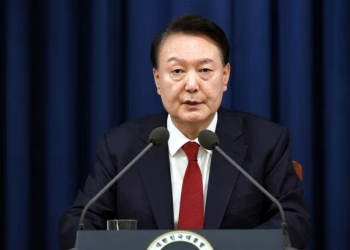Nigeria has launched a groundbreaking initiative to provide free emergency Caesarean sections for “poor and vulnerable” women, aiming to reduce the country’s high maternal mortality rate. With a rate of 1,047 deaths per 100,000 live births, Nigeria has the fourth-highest maternal mortality rate globally, and a lack of access to Caesarean sections is believed to be a significant contributing factor.
Many pregnant women, especially in rural areas, struggle to afford emergency medical care, with a typical Caesarean costing around 60,000 naira (approximately $64). This is beyond the financial reach of many, particularly in a country where over 40% of the population lives below the international poverty line, according to 2023 data from Nigeria’s National Bureau of Statistics.
Health Minister Muhammad Pate announced the launch of the Maternal Mortality Reduction Innovation Initiative on Thursday, which will provide free Caesarean sections at public hospitals for women who are registered under Nigeria’s public health insurance scheme. This initiative aims to eliminate the financial barriers preventing women from accessing life-saving care.
“We are ensuring that no woman in need is denied critical care due to cost,” Pate said, acknowledging that maternal mortality in Nigeria remains “unacceptably high.” The program will focus on emergency cases only, with social welfare units in public hospitals helping to identify eligible women who cannot afford the procedure.
Caesarean sections are critical in preventing complications such as obstructed labour, where the baby cannot safely pass through the birth canal, a condition that can lead to fatal ruptures or severe bleeding without medical intervention.
The World Bank has called the initiative a “game-changer,” with Trina Haque expressing support, while WHO representative Kazadi Mulombo emphasized their readiness to assist in the initiative’s implementation. Rhoda Robinson, executive director of the NGO HACEY, praised the policy for improving maternal and child health outcomes, particularly for low-income women who may otherwise turn to unsafe alternatives.
Mabel Onwuemena, national coordinator of the Women of Purpose Foundation, also commended the initiative and urged the government to consider expanding it to cover free drugs and ultrasounds for pregnant women.















